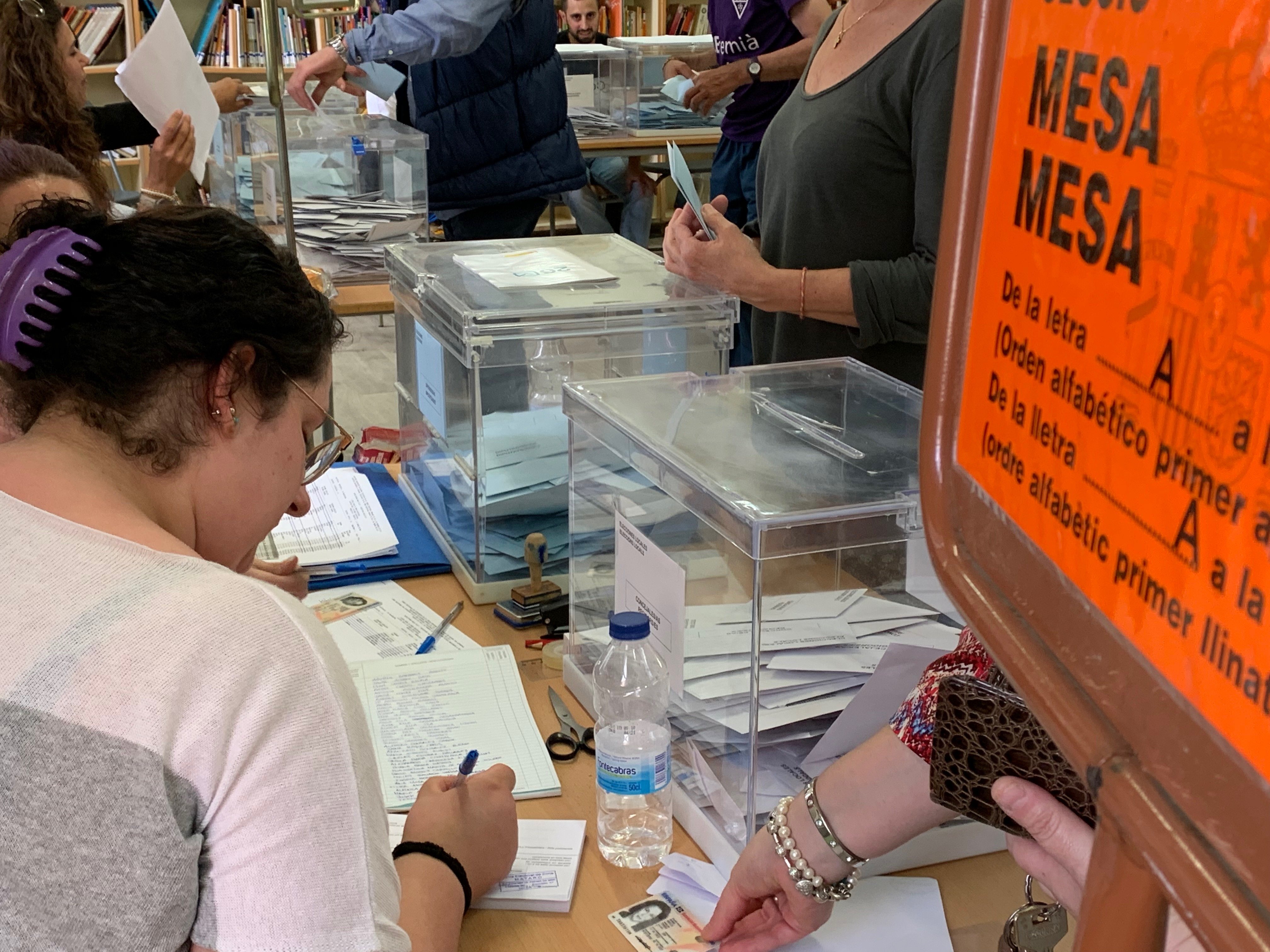If you are permitted to go to work, why can't you go and vote? That might be the most reductionist approach of the question on whether or not it is appropriate to hold the Catalan elections on 14th February. However, there is another variable that must be borne in mind: it is one thing for the logistics to be well organized and another for the public to perceive that it is safe to take part in them. In other words, being at the peak of the pandemic could mean that turnout will fall simply because voters are afraid to go to the polls. This is one of the arguments made in the 44-page report on the question of holding the elections prepared by the Catalan ombudsman's group of experts, which, in summary, predicts a scenario of serious or very serious impact if the elections go ahead on 14th February and argues that there are not enough guarantees to hold the elections safely. It therefore recommends that the government postpone them "until a time which permits a situation of epidemiological decline along with the establishment of all electoral measures that broaden the options for non-face-to-face voting."
A few weeks ago, the Síndic de Greuges or Catalan ombudsman, Rafael Ribó, created an independent advisory commission, made up of experts in the field of epidemiology and constitutional and electoral law, to advise the Catalan government and candidates on how to reconcile the right to vote with the right to health. On Tuesday afternoon they met to give their assessment of the situation and issue a recommendation. As reported by ElNacional.cat, they favour the postponement of the election date. Days ago, the group publicly demanded that the government should not allow face-to-face voting by coronavirus-infected people. That, they said, would be an attack on public health. The commission estimates that on February 14th there will be between 190,000 and 216,000 people in quarantine, who should not be able to leave home to vote. Because the government has not been able to enable a method for them to vote from home, the expert group recommends postponement.
In fact, one of the key points of the report concludes that "all people with the right to active suffrage must be able to vote in the next elections to the Parliament of Catalonia, but they must be able to do so without endangering their health or public health". In the event that the elections are put off, the proposal is to take advantage of the extra time: "The Spanish parliament should carry out with the utmost urgency the pending reforms of the general electoral law to make possible this electoral contest and others in a pandemic context such as the current one". In particular, they say, these reforms needs to include "the extension of postal voting, the enabling of other early voting options, including electronic voting, and the specific definition of grounds for possible postponements of elections once they have been called".
The Catalan Ombudsman's report: “The guarantee of the right to vote in the Parliamentary Elections of February 2021 in the framework of the current pandemic”
Currently, the cut-off time for voters to request a vote by mail is until 10 days before the election, and this would not be sufficiently close to the vote to ensure that those who have just been infected or started quarantine could complete the procedure. The ombudsman recommends reducing this period to two days.
The group of experts is made up of Dr Magda Campins, head of preventive medicine and epidemiology at Vall d’Hebron Hospital; Dr Juan Pablo Horcajada, head of infectious diseases at the Parc de Salut Mar; Dr Begoña Roman, professor of philosophy (UB) and president of the ethics committee of Social Services of Catalonia; Dr Luis López Guerra, professor emeritus of constitutional law at the Universidad Carlos III; Dr Enoch Albertí, professor of constitutional law at the University of Barcelona, and Dr Jordi Barrat, professor of constitutional law at Rovira i Virgili University.
Elections in May?
The elections question will be resolved this Friday, when the Catalan government and all the political parties with current representation meet to find a final position. According to various sources confirmed to ElNacional.cat, the proposal will be to delay the date with the ballot boxes, "for about two and a half months", they say, noting that Sant Jordi's Day (April 23rd) would most likely need to have gone by. So, probably May.
This Thursday, the Catalan health department is updating its forecast on the public health situation likely on 14th February. Given the evolution of the pandemic in the last few days, the new document will include even more pessimistic data than Monday's report, which already predicted that the peak of contagion would arrive just in time for the start of the two-week election campaign, with the ICU saturation also reaching its most critical point a few days before the planned election day. The document does not in itself give a view on whether to suspend voting or not, but the prediction is that the panorama will be bleak in mid-February.
The last word belongs to Catalonia's coalition government. The areas involved in the decision are led by the ERC party: health, electoral processes and, ultimately, the vice presidency (and acting presidency) of Pere Aragonès. The Republican Left party thus has to opt for the devil and the deep blue sea - either going ahead despite the health risk and rights questions, or postponing elections and being accused of electoralism. That is why they will seek the maximum consensus possible on Friday.
Most of the parliamentary parties agree on the need to postpone elections. The only party that considers that there are not enough reasons to postpone the elections is the Socialists (PSC). Curiously, their candidate is the current Spanish minister of health.

